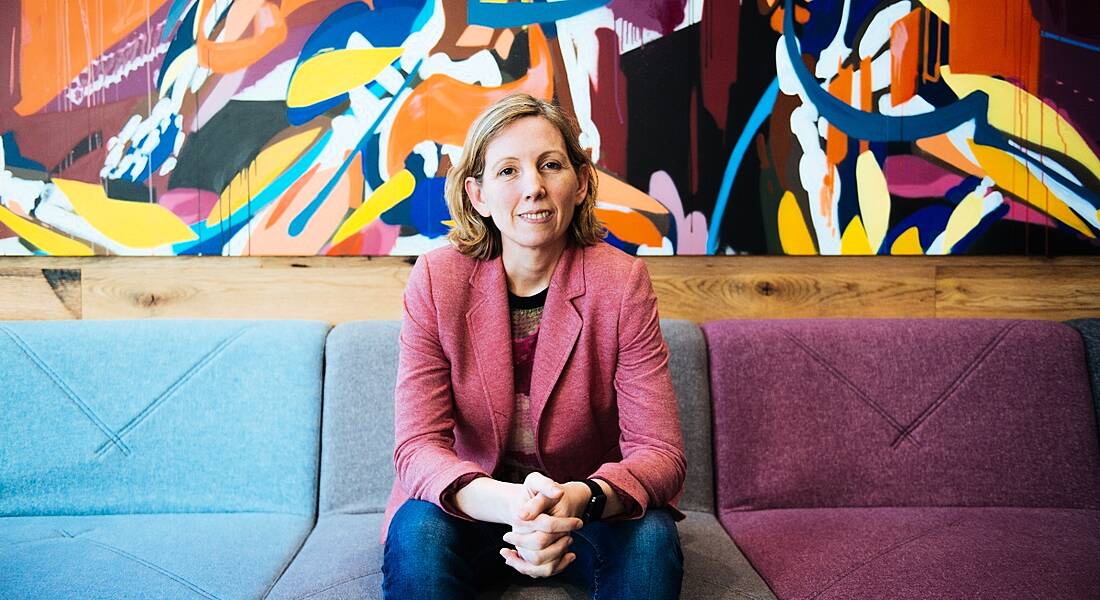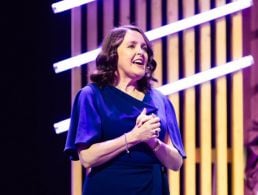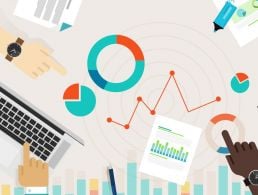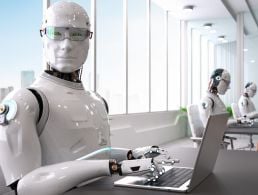Medb Corcoran, Ireland lead for Accenture Labs, talks about her career journey and why data skills will be critical for businesses going forward.
As the Ireland lead for Accenture Labs, Medb Corcoran oversees a team of AI researchers that seeks to address critical business problems with tools such as machine learning, natural language processing and knowledge representation.
This team is based at The Dock, Accenture’s R&D and innovation centre in Dublin.
Corcoran is also the company’s global responsible AI lead for technology innovation, helping organisations integrate a data-driven assessment of algorithmic fairness into their processes.
Here, she reflects on her career and why she believes workplaces of the future will rely on data skills like never before.
‘Trust me – people with these skillsets will not run out of work to do’
– MEDB CORCORAN
Did you always want to work with data? What motivated you to pursue a career in the field?
I suppose so, but I didn’t recognise it as such. Back when I started in the workforce, ‘working with data’ wasn’t a thing.
I always loved maths, ever since primary school. The key reason I loved it was you could get to a clear, precise answer, backed up by the calculations. So, when I finished university with two degrees in maths, I wanted a job where I could apply this to solve real-world problems – which meant using data as an input.
Have you faced any challenges in your career?
The biggest challenge for me is getting the balance right between being focused and driven in the work I do, which I’m really passionate about, and not missing the bigger picture when it comes to living life and making time for the people I love. It’s a hard one to get the right balance on.
I look to do that through a combination of regular habits – like walking my 10-year-old to school, even though it’s getting to the point he could walk himself, as it’s when we have the best chats with no distractions.
Once a year or so, I try to step back and take a more top-down, bird’s-eye view. For example, I think about if 20 years in the future I was writing a letter of advice to my current self, what would I say? I also try to take that approach when I have a big decision to make.
Do you think data professionals are going to be important in the future of work?
Almost everyone in the workplace will become a data professional going forward. The prevalence of data across organisations means that being able to use the data to gain insights will become increasingly important in most roles and sectors.
Put simply, a data professional is defined as anyone with data skills. Low-code and no-code data solutions are becoming more and more common, and these enable anyone to easily create and clean datasets, or build a data pipeline, as well as generate insights and reports. So, we will all become data professionals at the minimum level.
Demand for those at the more specialised level will increase also. As the less complex tasks start to be managed in other parts of the organisation, more technical requirements will grow in new areas – for example in artificial intelligence, in quantum computing, in blockchain. Trust me – people with these skillsets will not run out of work to do!
Which skills do you see becoming more important, in both the near and distant future?
A desire to learn new things is critical. It’s important now and will continue to be essential into the future. This appetite for continuous learning is the number one thing I look for when I’m interviewing.
The Future of Jobs 2020 WEF report says 50pc of all workers will need reskilling in the next four years and, critically, 40pc of current workers’ core skills are expected to change – that is a fundamental change in the skills they use to do their job.
The pandemic has reminded us that a good job with a stable organisation doesn’t mean what it used to. The greatest employment skill is adaptability; pivot fast, stretch to find the most creative solutions and seek new opportunities to build and grow skills.
What would your advice be for other people who want to carve out a career in data?
Get some hands-on experience – whether it is a Coursera course, entering a Kaggle competition or, if you are lucky, a relevant opportunity in work. Not only will this help you determine if this is something you really enjoy, it will give you concrete experience and examples to draw on when applying for relevant positions.
Are there any resources that you would recommend?
The best book I’ve read recently on data is Invisible Women by Caroline Criado Perez. It’s an interesting and engaging read, even for someone with little data experience.
My favourite podcasts are The New York Times’ The Daily and TED Radio Hour.
I had the pleasure of sitting on a panel at a Wired event with Cassie Kozyrkov, Google’s chief decision scientist. She shares a lot of information online to explain AI and how to apply it in a very understandable way.




